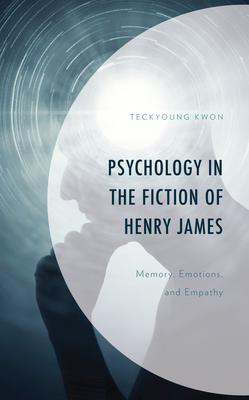Psychology in the Fiction of Henry James: Memory, Emotions, and Empathy focuses on the study of consciousness, also examines new ways to read fiction from a scientific perspective, one that draws upon early psychological theories and recent neuroscientific research. Freud and William James stand together as intellectual pioneers who contributed to our understanding of the revolutionary concept of consciousness. Meanwhile, Henry James devoted his life to the development of narrative methods that would extend the realm of Realism: a pursuit that led him to draw upon consciousness and experience alike. When examining these three figures, the key components of consciousness that they shared in common turn out to be memory, emotions, and empathy. This volume deals with theoretical works on those three concepts by the works of Freud, William James, and recent neuroscientists, as well as two narrative techniques Henry James devised to represent consciousness: ghosts and Free Indirect Discourse. Additionally, this book is an analysis of Henry’s major fictions to show how those scientific terms have been used to achieve a fresh reading of his novels. Overall, this volume demonstrates that the three components are elements in the dual-aspect monism that Freud proposed earlier.
| FindBook |
有 1 項符合
Psychology in the Fiction of Henry James: Memory, Emotions, and Empathy的圖書 |
 |
Psychology in the Fiction of Henry James: Memory, Emotions, and Empathy 作者:Kwon 出版社:Lexington Books 出版日期:2024-04-16 語言:英文 規格:精裝 / 204頁 / 普通級/ 初版 |
| 圖書館借閱 |
| 國家圖書館 | 全國圖書書目資訊網 | 國立公共資訊圖書館 | 電子書服務平台 | MetaCat 跨館整合查詢 |
| 臺北市立圖書館 | 新北市立圖書館 | 基隆市公共圖書館 | 桃園市立圖書館 | 新竹縣公共圖書館 |
| 苗栗縣立圖書館 | 臺中市立圖書館 | 彰化縣公共圖書館 | 南投縣文化局 | 雲林縣公共圖書館 |
| 嘉義縣圖書館 | 臺南市立圖書館 | 高雄市立圖書館 | 屏東縣公共圖書館 | 宜蘭縣公共圖書館 |
| 花蓮縣文化局 | 臺東縣文化處 |
|
|
圖書介紹 - 資料來源:博客來 評分:
圖書名稱:Psychology in the Fiction of Henry James: Memory, Emotions, and Empathy
|











